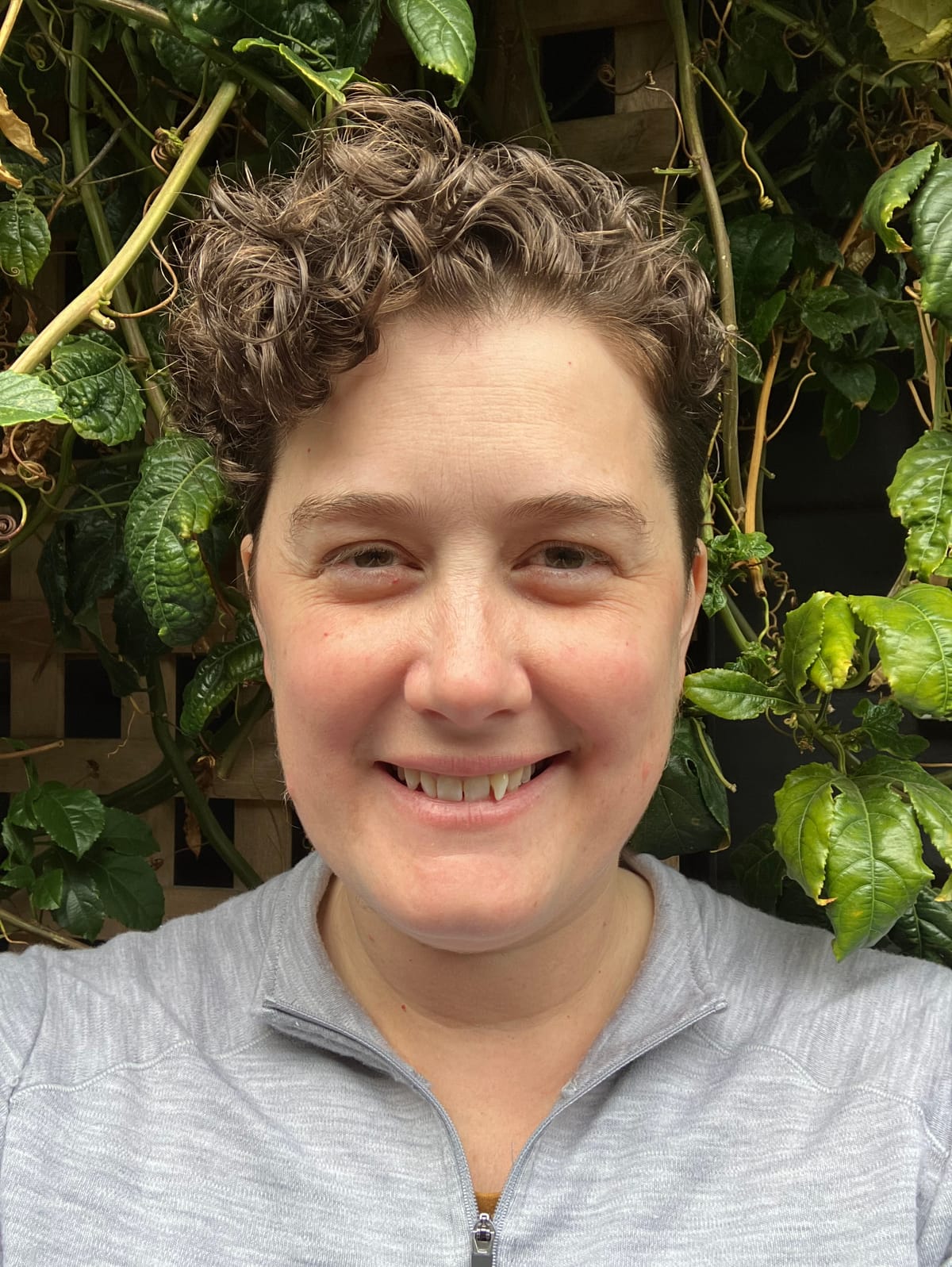About me

Who I am
My name is Emmeline Tyler, and I live in Naarm (Melbourne) with my husband and our child. My pronouns are she/they.
Getting into postpartum care
I first became interested in postpartum care in 2019, when my child was a toddler. I experienced birth as empowering and felt nurtured and rested in early postpartum, but I noticed that many other mums were having a much harder time. I wanted everyone to receive the support and care they needed at this essential time, to give them a head start going into parenting.
I trained with Julia Jones of Newborn Mothers [1] and dug deeper into my own experiences as part of that training, realising that my own matrescence [2] had not been as ideal as I had previously thought. I eventually also investigated my own experience of giving birth and learned more about the limitations of the medical model when applied to care and support during birth.
In particular I realised how lonely and isolated I was as a part-time working mum of a toddler. My extended family connections were not what I wanted them to be. Among my friends everyone was either working during the day, or in their own homes drowning in their own caring responsibilities. I felt let down by the church community I eventually drifted away from. I wanted to solve these problems of loneliness and isolation. But I didn’t just want to solve it for myself. I wanted to be a part of building something that would benefit all of us in a similar position. And I still do.
This is an affiliate link ↩︎
Matrescence is the transformation into motherhood, similar to adolescence in terms of the hormonal and identity shifts that take place.
“Patrescence (father-becoming) and paturescence (parent-becoming) are things too, similar identity crumbling and rebuilding processes for non-mother parents. The more any parent leans into hands-on, responsive caregiving the more their brains rewire, life changes and identity evolves” — Anna Cusack ↩︎
Mental illness struggles
When the pandemic hit in 2020, what support and structure I did have was gone seemingly overnight. My mental health unravelled quickly, as it did for so many of us. I ended up in a mental hospital for two weeks, an experience that has changed my life forever. I decided to put my postpartum business ambitions aside — possibly forever, I thought at the time — while I rested, processed my experiences, and recovered my health.
Reigniting the flame
In 2023, I realised that my passion for new parents getting the support, care and community they need wasn’t going anywhere, so I enrolled in Julia Jones’ new expanded course [1] and learned even more about postpartum support, including how to support bodyfeeding/breastfeeding, mental health challenges in new parents, sleep for babies and parents, and heaps more.
This is an affiliate link (the same link as before) ↩︎
Culture and community
My focus in postpartum education and care is community and relationship connections.
I studied anthropology at uni so I am always viewing my own culture as if from the outside. (This could also be to do with me being autistic). What I have observed is that parents in a similar demographic to me are suffering in similar ways.
I have learned that when it comes to child-rearing, mainstream Australian culture (and other similar cultures) are far from the norm. While it is normal for child-rearing to be a collective responsibility, so many parents in Australia are left largely unsupported in our raising of children, struggling in isolation.
There are so many structural barriers in the way of parents forming and maintaining life-giving connections with each other, and also with other people not in the thick of child-rearing.
What gives me hope is that it doesn’t have to be this way.
My goals as a postpartum education and care professional are to…
- Facilitate connections between local, like-minded parents to create space for life-giving friendships.
- Link to external resources and support services to help parents with caring for your child or children, and seeking support for yourself. This information is evidence-based, inclusive, and realistic in regard to what is possible given any unavoidable non-ideal circumstances.
- De-gaslight parents. If you are struggling, it is not a personal failing. On the contrary, you are being failed by a lack of support.
- Provide support and information on building communities of care and breaking down barriers to authentic connection.
To find out more about how I seek to achieve these goals, please check out my service page.